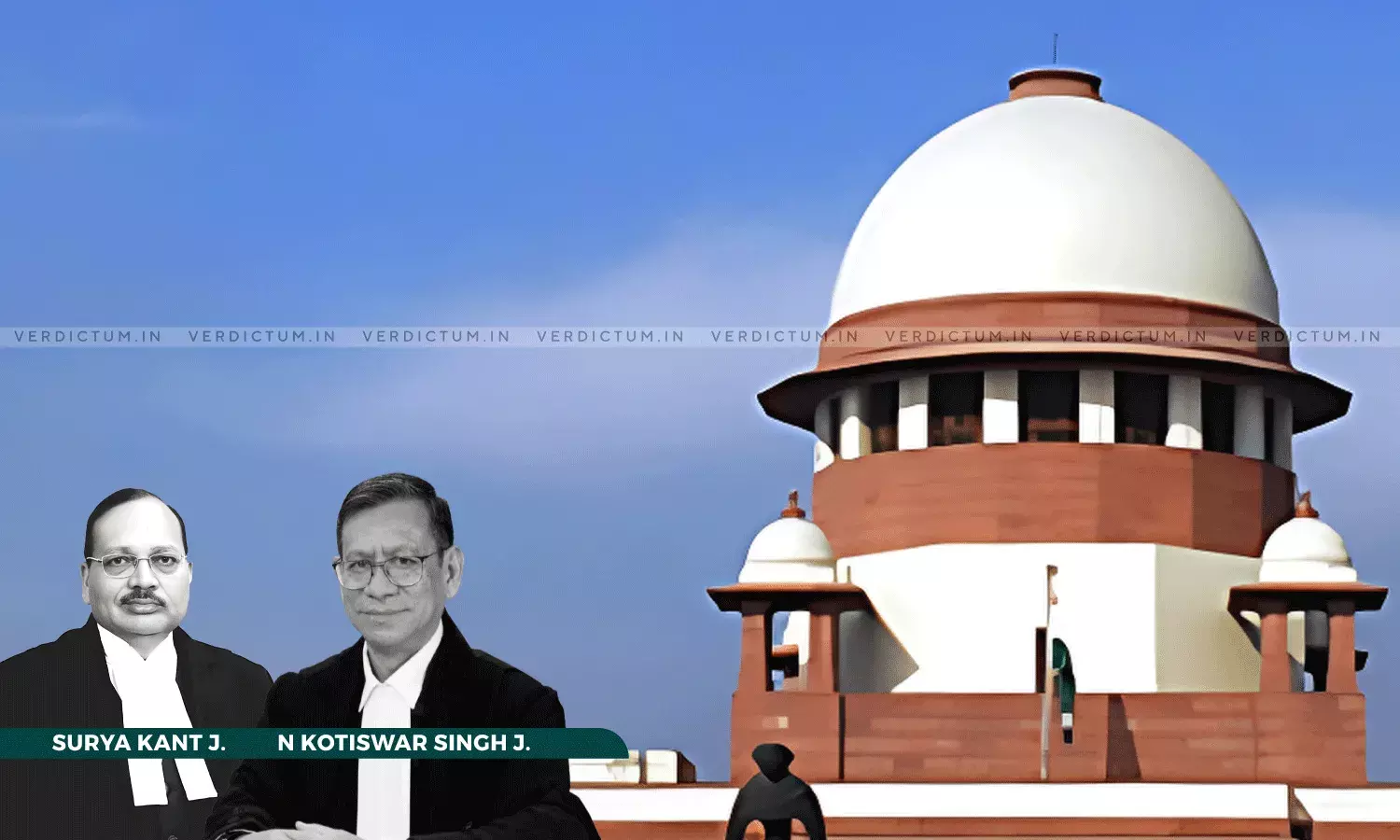Legislature Should Review Laws From Time To Time To Examine Deficiencies And Grey Areas: Supreme Court

The Supreme Court today suggested that there be a periodic review of laws and that an expert body should examine whether a legislative enactment is serving the intended object.
A two-Judge Bench comprising Justice Surya Kant and Justice Nongmeikapam Kotiswar Singh was in the process of hearing a Writ Petition filed by former Union Minister and Member of Parliament (MP) Maneka Gandhi challenging a provision placing a limitation period on the filing of election petitions and a separate appeal challenging the Allahabad High Court's refusal to interfere with the election of Samajwadi Party MP Rambhual Nishad.
During the course of the hearing, Justice Kant remarked, "With every law, there should be a legislative review. Reviews should not only be confined to judicial reviews, there should be legislative reviews of laws from time to time. You may have it every 20 years, 25 years or 50 years."
Justice Kant, suggesting that there be an expert body to undertake periodic legislative review, said, "One should have an expert body to find out whether a law has worked well, what was the object for which it was enacted and has it really succeeded in achieving that object. If not, what are the deficiencies, bottlenecks and grey areas which need to be taken care of."
Agreeing with Justice Kant, Senior Advocate Siddharth Luthra added, "There has to be an audit of legislations. We can't have legislations that are cast in stone. That unless a stimulus comes either from the Court or otherwise and then there is an amendment."
In August, the Allahabad High Court had dismissed Maneka Gandhi's election petition against Rambhual Nishad, who had defeated her in the 2024 Lok Sabha elections, stating that her petition was filed beyond the prescribed limitation period.
Maneka Gandhi's election petition alleged that Nishad had failed to disclose the full extent of criminal proceedings against him in nomination papers. She contended that Nishad declared only 8 criminal cases in Form-26, while he had 12 unresolved cases, which she argued constituted a corrupt practice under Section 100 of the Representation of the People Act, 1951.
The High Court had dismissed the petition since it was filed beyond the 45-day limitation period prescribed in Section 81 of the Representation of the People Act, 1951.
The Court concluded, "The election petition has apparently been filed beyond the period of 45 days prescribed in Section 81 of the Act 1951. Section 86 of the Act 1951 provides that the High Court shall dismiss an election petition which does not comply with the provision of Section 81 or Section 82 or Section 117 of the Act 1951."
Today, Siddharth Luthra contended that the limitation period under Section 29(2) of the RPA is "not an express exclusion" and urged the Bench that "the law should be revisited in the context of a person who has suppressed material facts of four criminal cases." This lead to to Justice Kant declaring, "We don't want to open the floodgate."
Justice Kant said if the argument was that the limitation period of 45 days is "bad" and the Court decides to extend it to a longer period, it would amount to the Court legislating.
Luthra contended that he was not seeking that the Court legislate, but only that it declares that the Supreme Court's in Hukumdev Narain Yadav vs. Lalit Narain (1973) legislated and hence, needs to be revisited.
In Hukum Dev, the Supreme Court had observed that whether or not the sections of the Limitation Act are applicable to a particular legislative enactment should not be decided by a mere reading of the words of the relevant sections of the Limitation Act. It added that an enactment needs to be viewed holistically to conclude whether it attracts one or more of the sections of the Limitation Act.
On Section 29 of the RPA, the Court said, even if there is no explicit mentioning of the exclusion of the Limitation Act in the said enactment, as mandated by Section 29(2), RPA on being a complete code in itself would be freed from the shackles of the Limitation Act.
Today, the Bench said it does not wish to get into arguments on interpreting Section 29 of the RPA in the present petition and that "this is an argument available to you in your civil appeal where your election petition has been dismissed relying on Hukum Dev. There you can say this is not good law and requires consideration by a larger Bench."
Upon the Bench's suggestion, Luthra said he was withdrawing the Writ Petition. The Bench granted him the liberty to raise certain prayers made in the Writ Petition while arguing the civil appeal. In the civil appeal, the Court issued notice and granted four weeks to file a reply.
Cause Title: Maneka Sanjay Gandhi v. Union of India [W.P.(C) No. 588/2024] with Maneka Sanjay Gandhi v. Rambhual Nishad And Ors. [C.A. No. 10644/2024]

